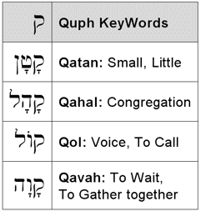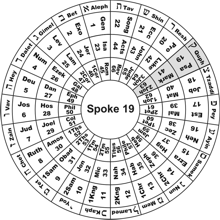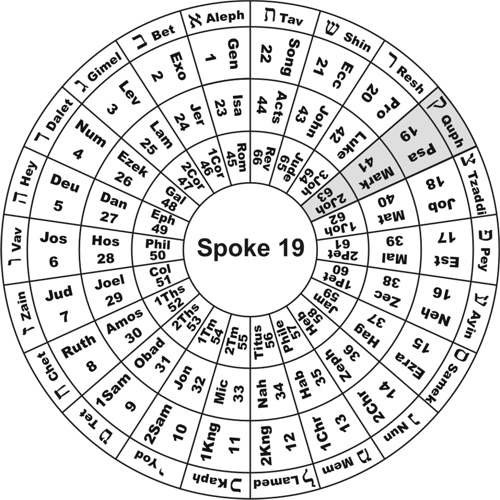2 John: The Elect Lady
The elder unto the elect lady and her children, whom I love in the truth;
and not I only, but also all they that have known the truth; For the truth’s sake, which dwelleth in us,
and shall be with us for ever. ... I rejoiced greatly that I found of thy children walking in truth,
as we have received a commandment from the Father.
2 John 1ff (Spoke 19, Cycle 3)
 The
second Epistle of John has two unique features. First, it is the smallest Book in the Bible.
This exemplifies the KeyWord qatan (small) and coheres with Mark as the smallest Gospel and
the smallness of the "eye of a needle," the literal meaning of Quph.
This word is frequently used to refer to small children, such as
a "little sister" (achoth q'tanah , Song 8:8) and the "little child" that will peacefully lead the lion
and the lamb in the day God rules on earth (na'ar qaton, Isa 11:6). The
second Epistle of John has two unique features. First, it is the smallest Book in the Bible.
This exemplifies the KeyWord qatan (small) and coheres with Mark as the smallest Gospel and
the smallness of the "eye of a needle," the literal meaning of Quph.
This word is frequently used to refer to small children, such as
a "little sister" (achoth q'tanah , Song 8:8) and the "little child" that will peacefully lead the lion
and the lamb in the day God rules on earth (na'ar qaton, Isa 11:6).
The second unique feature is that 2 John is the only Book addressed to a woman.
Opinions vary as to whether she was an individual known to John or a symbol of the congregation
to which he wrote. The latter has a lot of support from the general typological pattern
of Scripture which presents the Church as a woman (Eph 5:32, Rev 19:7, BW book pg 73).
Moreover, John typically calls believers "little children" (1 John 2:1, 12, 13, etc.),
and this coheres with his closing salutation where he replaced what normally would be
a greeting from his congregation with another reference to a woman and her children, saying,
"The children of thy elect sister greet thee." Finally, the Hebrew word for a congregation
is itself the Quph KeyWord qahal, which is typically rendered by the Greek ekklesia (church)
in the Septuagint, and these words are etymologically linked to each other through the
Quph KeyWord qol (call) and its corresponding Greek root kaleo (call) (see
The Voice of my Cry).
This is because God's Congregation, the Church, is made up of all He has called
out from the world to be holy (qadosh) unto Him through faith in His Holy One,
Jesus Christ. This call that forms the congregation is also the root of the word
ekkletos (elect) with which the Apostle both opens and closes his
little Epistle, a feature found in no other Book.
|



